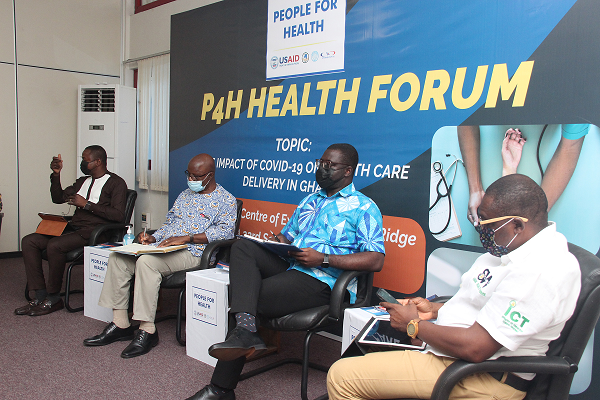
Ghana must capatalise on digital technologies to achieve Universal Health Coverage- GMA
The Ghana Medical Association (GMA) has stressed on the need for the country to capatalise on digital technologies to help in achieving and sustaining a Universal Health Coverage (UHC).
It explained that the use of new digital technologies and its impact on the health sector was not new in Ghana, however there was a lot of untapped new digital technologies opportunities which the country could harness to ensure that affordable quality health care services were widely available to all Ghanaians especially the venerable in the society.
Advertisement
The Deputy General Secretary of the association, Dr Titus Beyuo noted that achieving the UHC through innovative health system approaches was very pertinent at improving the performance of the health sector, since it would give equal access to quality health services, eliminating facing financial hardships.
He was speaking in Accra today (September 23)at a health forum which was organised by Penplusbytes in collaboration with SEND Ghana and the Ghana News Agency.
Held on the theme “Impact and change in communities for sustainable health care delivery,” it brought together relevant stakeholders to discuss how COVID-19 has impacted healthcare delivery and find practical solutions that can help address the inequities in healthcare delivery in Ghana.
Technology
“If we have a very solid technological backbone or infrastructure, we can do telemedicine and tele-consultation so that people in remote part of the country can also get access to expert services from specialists through technology without they moving to any health facility,” Dr Beyuo said.
Touching on the impact of COVID-19 , he said there has been both a positive and negative influence in the healthcare delivery system.
For instance, he said it has helped improved the country’s healthcare infrastructure to care for emergency services as well as how to redistribute staff in the event of a pandemic.
“If we have another pandemic , I think we will be better prepared than we were before COVID-19 came so definitely there has been that positive impact,” he said.
On the flip side, he said the pandemic hit hard on the healthcare workforce, saying that a lot of health professionals fell ill to the COVID-19 and consequently led to the death of many of them.
“But in all, I think we should look at the positive impact and improve on it so that should another pandemic occur, we will be best prepared,” Dr Beyuo said.
Significant strides
For his part, the Hear of Information, Communication and Technology (ICT) Department of the Ghana Health Service, Mr Samuel Quarshie, indicated that the health sector had made significant strides in terms of digitalisation and innovations.
He said currently, GHS was work in close collaboration with National Information Technology (IT) Agency, which is the technical arm of the Ministry of Communication and Digitalisation to ensure back to back connectivity among the healthcare facilities across the country.
In addition to that, Mr Quarshie said the service had also invested in portable IT tools such as smart tablets and phones.
He said several of them had been distributed to health workers in the rural areas to enable them collect data and also to report on health outcomes and indicators for decision making.
He indicated that the healthcare system was an information intense industry and all data collected needed to be analysed through the use of artificial intelligence.



